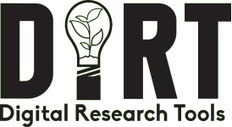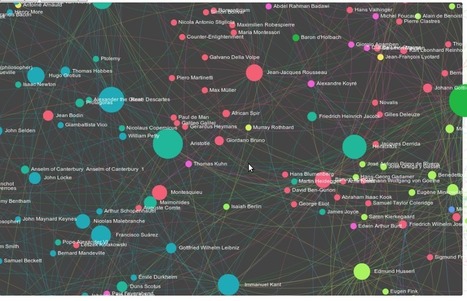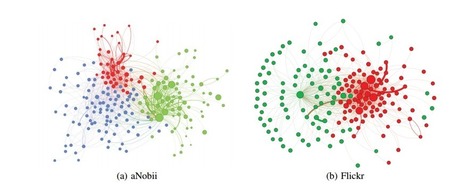Via luiy
Get Started for FREE
Sign up with Facebook Sign up with X
I don't have a Facebook or a X account

 Your new post is loading... Your new post is loading...
 Your new post is loading... Your new post is loading...

luiy's curator insight,
May 1, 2014 8:37 PM
Resuming from last time, I've made some updates to the philosophers' social network including publishing two interactive maps. Quick introduction: you know that sidebar on wikipedia where it tells you someone was influenced by someone else, linking to them? These graphs are generated from asking wikipedia for a comprehensive list of every philosopher's influence on every other. There are some sample-bias issues and data problems I went over in the first part of the series, but overall it's both beautiful and interesting.
Interactive visuals
The first lets you zoom dynamically and makes it easier to see local networks. When you hover over individual philosophers, those who are not linked to them or from them disappear. This uses a tool called sigma.js.
|

luiy's curator insight,
August 19, 2014 5:35 PM
Today, Luca Maria Aiello at Yahoo Labs in Barcelona, Spain, and a couple of pals, change that. They tease apart the nature of the links that form on social networks and say these atoms fall into three different categories. They also show how to extract this information automatically and then characterize the relationships according to the combination of atoms that exist between individuals. Their ultimate goal: to turn anthropology into a full-blooded subdiscipline of computer science.
Aiello and co used two data sets from a pair of large social networks. The first consists of over 1 million messages sent between 500,000 pairs of users of the aNobii social network, which people use to talk about books they have read. The second is a set of 100,000 anonymized user pairs who commented on each other’s photos on Flickr, sending around 2 million messages in total.
The team analyzes these messages based on the type of information they convey, which they divide into three groups. The first type of information is related to social status; messages displaying appreciation or announcing the creation of the social tie such as a follow or like. For example, a user might say a photograph is “an excellent shot” or say they’ve followed somebody or acknowledged attention they’ve got by thanking them for visiting a site. 
Francisco Restivo's curator insight,
August 20, 2014 6:51 AM
Alex Pentland would call this Social Physics. |












The DiRT Directory is a registry of digital research tools for scholarly use. DiRT makes it easy for digital humanists and others conducting digital research to find and compare resources ranging from content management systems to music OCR, statistical analysis packages to mindmapping software.
Great index of digital research tools for the curious contemporary researcher.